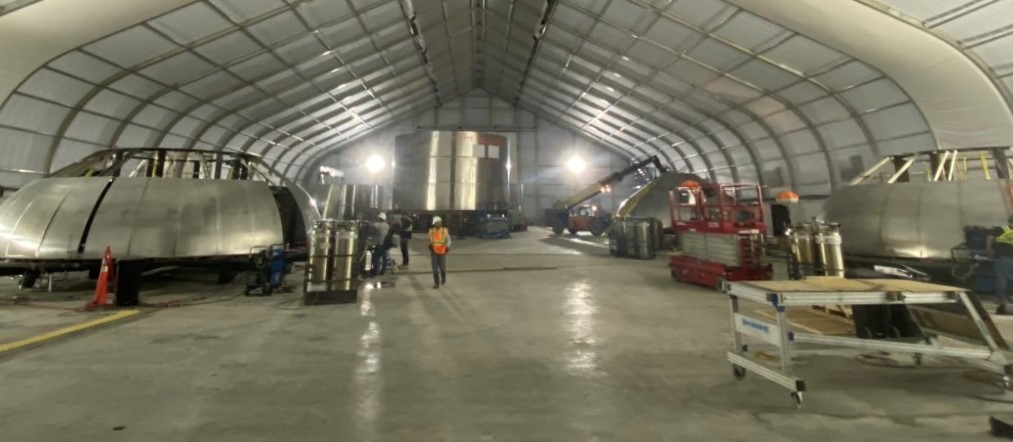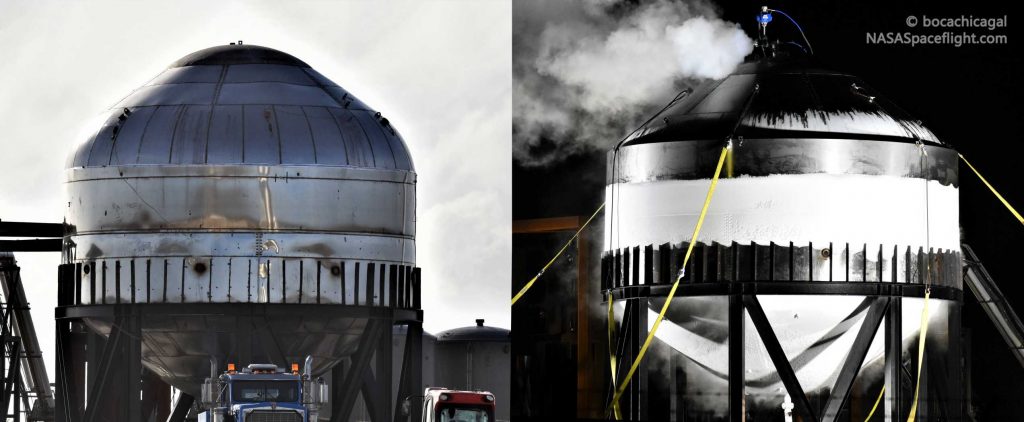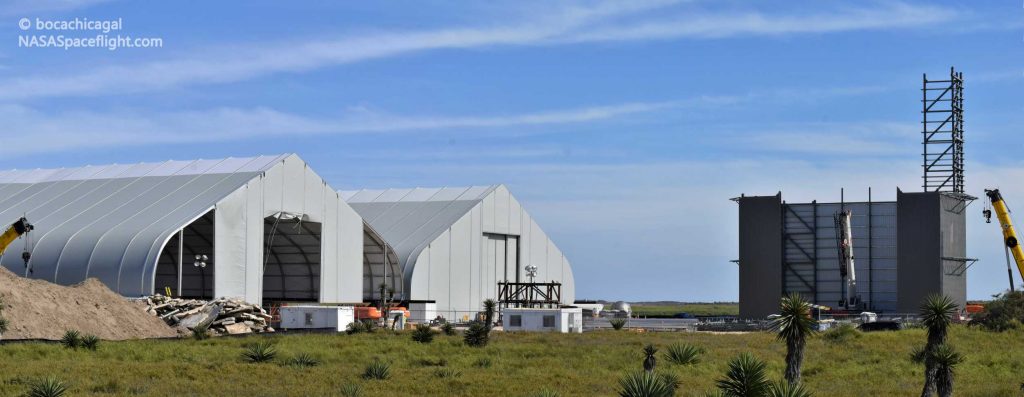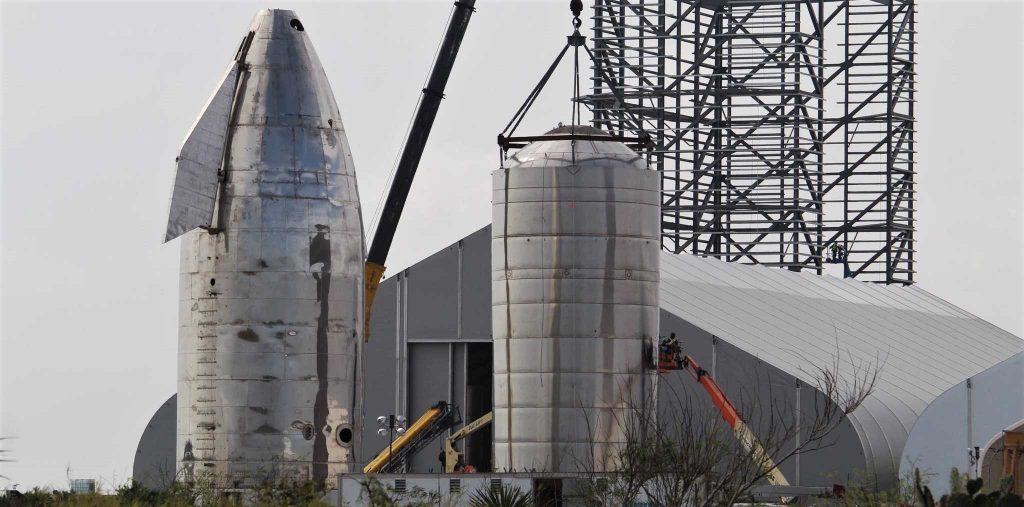Elon Musk has posted a new glimpse inside SpaceX’s South Texas Starship factory, revealing a nearly-completed rocket nosecone and indicating that the first upgraded Starship prototype’s flight debut is imminent.
SpaceX teams have been working around the clock for a little over a month to build the first full-scale, flightworthy Starship prototype, a process that only began after two ‘test tanks’ were fabricated, assembled, and pressurized until they burst on January 10th and 28th. Built with improved tools and methods, those test results – particularly from the second test tank – allowed SpaceX to empirically confirm that its current infrastructure and techniques are ready to manufacture orbital-class (and even human-rated) Starships right now.
And so work on the first truly flightworthy Starship prototype – known as SN01 (serial number 01) – thus began in earnest around mid-January, perhaps less than a month ago. Over the course of that month, SpaceX’s South Texas team has made spectacular progress. Starship SN01’s business half – comprised of a Raptor engine section, a liquid oxygen tank, a methane tank, and all associated tank domes and plumbing – is likely just a single big stacking and welding event away from being structurally complete. The upper section of the prototype – Starship’s curved nose and a few less-critical steel rings – has, however, been a bit more elusive.
Aside from a few partial glimpses earlier this month, that nose appeared for the first time two or so weeks on a local resident’s livestream earlier today – just a few hours before Musk offered an even better view inside the same tent it was spotted in. Situated in the second large sprung structure erected at SpaceX’s Boca Chica, Texas facilities, Musk’s video revealed that that tent – really only completed less than two weeks ago – is already full of Starship production hardware.


Without exaggerating, it’s safe to say that SpaceX has effectively gone from a handful of parts worth of Texas rocket production to a multi-vehicle, Starship production line concurrently manufacturing multiple vehicles in about eight weeks. While it would be theoretically easy for critics and a more general audience to see little more than some cheap stainless steel parts in a few hastily-constructed temporary tents, the reality is that SpaceX has already proven – at a minimum – that a steel Starship built with the exact same tools, facilities, and methods will likely be capable of spaceflight.
SpaceX’s January 2020 Starship test tank program proved as much, demonstrating that thin steel tanks built in tents can serve as orbital-class pressure vessels and survive at internal pressures greater as high as 8.5 bar (125 psi) while filled with cryogenic (extremely cold) liquid. Meanwhile, Tesla’s Fremont factory General Assembly line 4 (GA4) – having continuously churned out high-quality Model 3s for more than a year – has proven that sprung structures can make for fast, cheap, and more or less permanent factory solutions. Prospective SpaceX competitor Blue Origin even based its own brand new headquarters – opened in January 2020 – around an odd U-shaped sprung structure.


Nevertheless, SpaceX’s small test tank successes do not necessarily guarantee that the same kind of tests performed at full scale will be equally successful. The biggest proof of concept for SpaceX’s upgraded Starship production methods will involve manufacturing, fueling, static-firing, and – eventually – flying a complete Starship prototype built with the same methods as those test tanks.
The pressure vessel section of Starship SN01 – said pathfinder prototype – appears to be nearly complete, missing only its integrated engine section and oxygen tank dome before it could theoretically be ready to start cryogenic testing. Incredibly, information acquired and published by NASASpaceflight.com reporter Michael Baylor indicates that SpaceX wants to complete the prototype and transport Starship to its nearby launch site just ten days from now.

A step further, if things go as planned, SpaceX wants to install Starship SN01’s three Raptor engines and perform a live static fire test as soon as early March. In short, SpaceX’s Starship program is likely about to enter a new period of ambitious, rapid-fire testing. Stay tuned!
Check out Teslarati’s newsletters for prompt updates, on-the-ground perspectives, and unique glimpses of SpaceX’s rocket launch and recovery processes.

(adsbygoogle = window.adsbygoogle || []).push({});
<!–
–>
var disqus_shortname = «teslarati»;
var disqus_title = «SpaceX’s first Starship test flight imminent as rocket nosecone nears completion»;
var disqus_url = «https://www.teslarati.com/spacex-first-starship-test-flight-imminent-nosecone-production/»;
var disqus_identifier = «teslarati-130703»;

